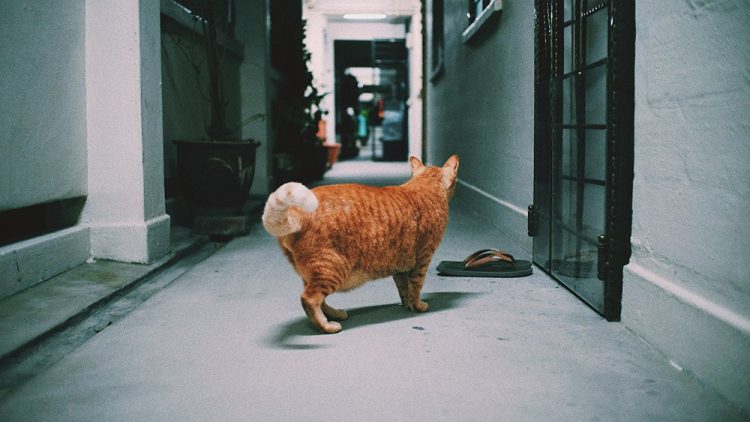It’s common knowledge that cat’s lifestyles make them prone to worm infestations, but not many owners realize that the type of worm that’s settling in your cat’s digestive system dictates the symptoms and reaction you’ll see. Not all worm infestations are equal, in size or in the type of worm.
In this article, we’re going to take a close look at hookworms and how they affect your cat’s digestive system.
What are hookworms?
Hookworms are small, thin worms that can live in cats’ small intestines. They latch on to the intestinal wall using their teeth and feed by sucking blood through the lining.
The type of hookworms that affect cats are known as ancylostoma worms and an infestation of these worms is medically referred to as ancylostomiasis. It is not unique to felines. They tend to be more common in humid damp areas and often thrive and contaminate stagnant water sources.
Hookworms are not visible to the naked eye, so any symptoms you see will need to be checked out by a veterinarian who can properly diagnose a hookworm infestation.
Hookworms are most commonly contracted through ingestion of contaminated water or feces, or through skin penetration on the feet.
What are the signs and symptoms of hookworms in cats?
The first and most telling sign of hookworm infestation in cats is skin irritation and lesions on their paws. It’s commonly found on either the pads or between the toes. These are entry points for the hookworm.
After burrowing into the skin of the feet, they take hold in the small intestines where they begin to cause a range of other symptoms including:
- Weight loss or loss of appetite
- Diarrhea
- Anemia which is characterized by pale gums
- Bloody stools
If your cat is exhibiting any of the symptoms above, or has clear lesions on their feet then it’s crucial that you get them checked up by a vet immediately. Continued infestation can lead to a serious degradation of your cat’s well-being and quality of life.
How are hookworms diagnosed?
Since they are invisible to the naked eye, you will need to arrange to have your vet inspect your cat’s feces beneath a microscope. There is currently no test for hookworm in cats, but hookworm eggs and larvae will be clearly present in feces, and the necessary course of action can be taken.
The sooner a hookworm infestation is diagnosed and treatment begun, the less chance there is of any complications arising or prolonged treatment required.
Treatments vary in duration and in potency significantly depending on the age, weight and overall health of your cat. Because of this, there’s no reason to be alarmed if the treatment you are prescribed differs greatly from what you’ve seen of other’s experiences online or through word of mouth.
Getting rid of hookworms in cats
Treatment of hookworms is commonplace and consistent across all species of hookworm. Your veterinarian will asses the level of infestation and prescribe medicines that will rid the small intestines of hookworms. There are also over the counter deworming treatments available that can help deal with mild infestations.
As with most worming treatments, it is not a one off application. The reason behind this, is that medicines typically target the small intestine only, and cannot work to kill hookworms that are in the process of migrating to the small intestine.
A bi-weekly application is typically recommended, which will tackle any remaining larvae and eggs as they begin to mature and take hold. There is no set number of treatments required before an infestation is obliterated, but your vet will advise you on the process and guide you through it until completion.
After a treatment is complete, many advise utilizing probiotic supplements to restore a healthy balance of bacteria to the gut and digestive pathways.
Can hookworms kill cats?
There are cases where hookworm infestations eventually lead to the death of a cat, though these tend only to affect very young kittens or cats that go untreated for long periods of time.
Kittens can contract an infestation from their mother’s milk, so if there are any deaths in a litter then time is of the essence to get the other kittens and the mothering cat checked out as swiftly as possible.
Did you find this article helpful?
